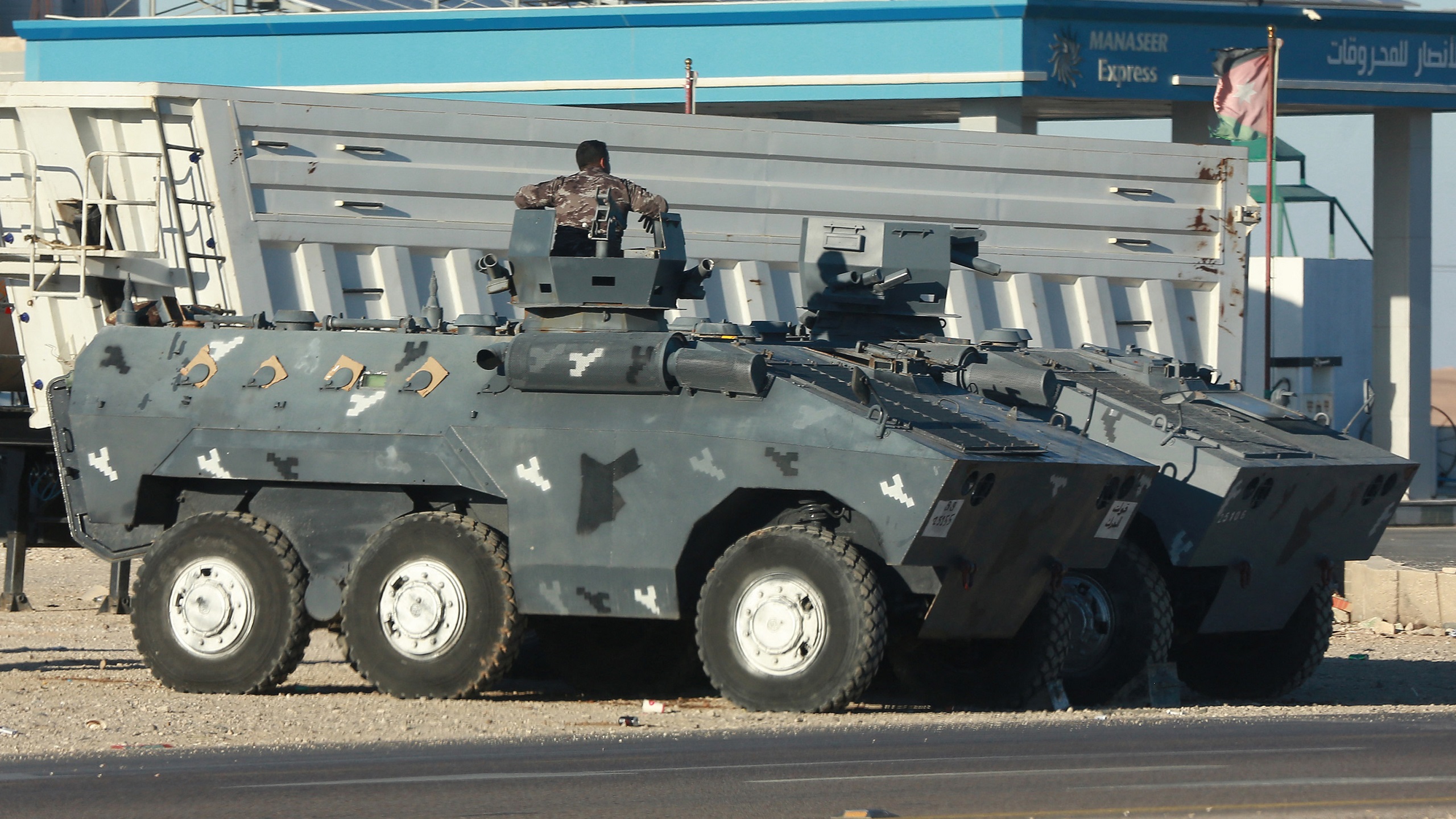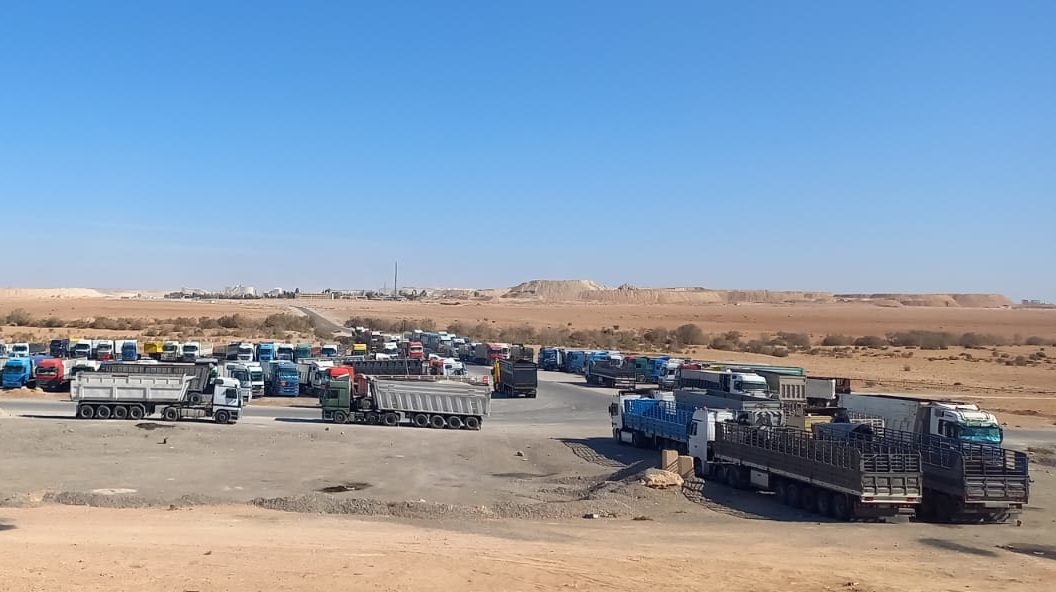Jordan’s Truckers Continuing 2nd Week of Protest
The truckers say fuel prices should drop to reflect global price trends but the government says this can only happen when an interministerial committee meets to set prices
Jordanian truckers continued Sunday their protest strike for the second week as the government rejected their demands for the lowering of fuel prices. The center for the truckers’ strike is the southern city of Maan, where most of the truck owners and drivers are striking and generally preventing trucks and buses from traveling on the main highway. Jordanian security has filled the highway as well as the alternate Jordan Valley/Dead Sea road that is largely open to those wishing to travel.
An announcement by members of parliament that the strike had ended Saturday night proved to be incorrect although a statement was published and signed by some truck drivers. Most of the truckers in Maan, however, have continued to protest.
Mohammad Abu Safieh, a radio announcer who specializes in transport issues told The Media Line Sunday morning that the strike was continuing. “I am in Maan this Sunday morning interviewing truckers and the strike is still very much on.” Abu Safieh said there was an expectation that the protests would escalate after the Kerak city council issued a statement calling for a general strike on Monday.
Jordanian security officials announced Saturday that 44 Jordanians had been detained for acts of destruction to public and private property.
The US has issued two travel warnings and the Jordanian Tourism Ministry has advised tour companies not to send tourists to the southern areas of Jordan. Two attempts by the government and some parliamentarians to end the strike have failed to dissuade the Maan-based truckers.
Government spokesman Faisal Shboul and Interior Minister Mazin Abdellah Hilal Al Farrayeh held an impromptu press conference Friday following the unresolved case of a midnight shooting at the home of a senior police officer. The Maan police deputy chief was killed, and a number of others were injured in the attack. King Abdullah visited the family of the deceased, who comes from the Bani Hassan tribe. Family members, however, refused to have any government official publicly come to pay condolences, a sign that they blamed the government for its hard-line policies, which they believe caused the death of their son.

Jordanian security forces deploy their armored vehicles in the southern city of Maan, some 220 kms south of the capital Amman, on Dec. 16, 2022 hours after a senior police officer was shot dead in riots during a strike against rising fuel prices in the area. (Khalil Mazraawi/AFP via Getty Images)
The interior minister called on fellow citizens not to destroy public property or impede travelers and insisted that the government cannot now lower fuel prices.
Jordan in 2014 ended the subsidy of fuel at the recommendation of the International Monetary Fund (IMF). Instead of providing subsidies, an interministerial committee meets monthly and sets fuel prices based on international oil prices.
Striking truckers say worldwide oil prices have gone down, while the government says prices can only reflect this change when the monthly review comes up. But truckers and other protestors say the government added a huge tax on fuel, and this could be reduced without angering the IMF.
Amer Shobaki, a Jordanian economist, told The Media Line that the problem began early this year: “The government had suspended the fuel tax for four months and when the IMF did their review, the government agreed to recoup the amount that was suspended through monthly increases of the fuel prices.”
Shobaki said that not only did the finance minister commit to recoup that amount but even the prime minister made that commitment, which amounts to about 30% that is added to the price of fuel. Shobaki said that as a result, “the government had raised the price of fuel products every month for the past eight months despite the fact that the price of oil globally had gone down.” He says the government needs to be creative: “I have suggested that the government could bring in the same amount of revenue by increasing the tax on cigarettes and other nonessential items rather than insisting on keeping the high price of fuel products.
Shobaki said his suggestion about raising the tax on cigarettes which he posted on social media, was not rejected even by cigarette smokers.


